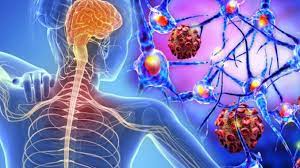Nervous Disability Treatment by Sanyukt Chikitsa and Ayurvedic Neuro therapy :-
Disorders of the nervous system
- Vascular disorders:- such as stroke, transient ischemic attack (TIA), subarachnoid hemorrhage, subdural hemorrhage and hematoma, and extradural hemorrhage
- Infections:- such as meningitis, encephalitis, polio, and epidural abscess
- Structural disorders, :- such as brain or spinal cord injury, Bell's palsy, cervical spondylosis, carpal tunnel syndrome, brain or spinal cord tumors, peripheral neuropathy, and Guillain-Barré syndrome
- Functional disorders :- such as headache, epilepsy, dizziness, and neuralgia
- Degeneration :- such as Parkinson disease, multiple sclerosis, amyotrophic lateral sclerosis (ALS), Huntington chorea, and Alzheimer disease.
Symptoms
Unless they prolapse, internal haemorrhoids rarely (if ever) cause pain and typically cannot be felt. Because internal haemorrhoids don't generate symptoms, many sufferers are unaware that they have them.
If you have internal haemorrhoids, you can notice blood in your stool, on the toilet paper, or in the toilet bowl. These indicate rectal bleeding. Signs of external hemorrhoids include:
- Itchy anus.
- Hard lumps near your anus that feel sore or tender.
- Pain or ache in your anus, especially when you sit.
- Rectal bleeding.
- Prolapsed hemorrhoids can be painful and uncomfortable. You may be able to feel them bulging outside of your anus and gently push them back inside.

